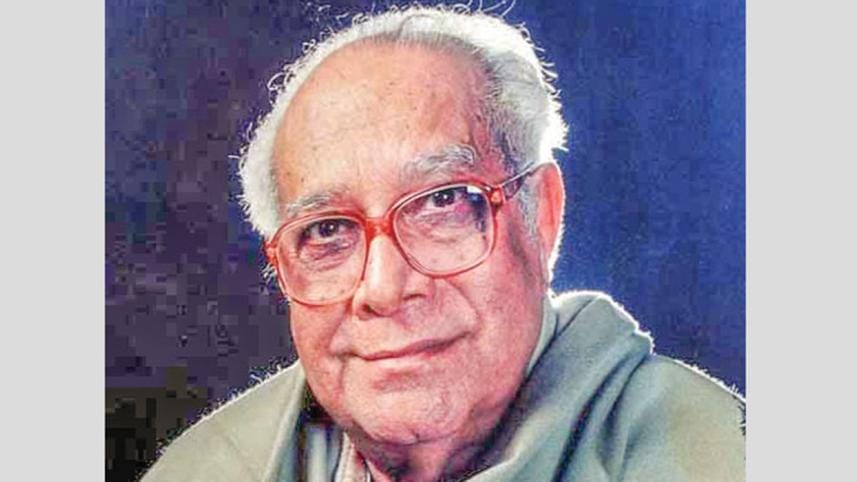Remembering Kalim Sharafi

On this day eight years ago, we lost Kalim Sharafi, a distinguished and inspiring figure in music. Renowned for Rabindra Sangeet and Gano Sangeet, he took the cultural front to fight imperialism, communalism and crimes against humanity. Born at Birbhum in West Bengal in 1924 in a Pir (spiritual leader) family, where the practice of music was forbidden, Sharafi began developing revolutionary characteristics at an early age with his love for music, defying his family tradition of treading along the path of religious rituals.
Instead, Kalim took the cultural way for making people politically conscious, especially during the struggle against British colonial rule, the Liberation War of Bangladesh in 1971 and the movement launched in independent Bangladesh in 1991 against the war criminals. During the Liberation War, Sharafi took part in numerous programmes in the USA and UK to gather support for the war. In 1983 he established music academy Shangeet Bhaban, a Gano Sangeet organisation. He served as its Principal till death.He also organised and established different theatre groups, namely Bahurupi and Prantik and performed as a playback singer, Adhunik (modern) singer and music director. He also directed an autobiographical documentary and a film named Sonar Kajol.
Sharafi, an adviser to Ekattorer Ghatak Dalal Nirmul Committee, a body that champions the demand for the war crimes trial, received numerous awards including the national award Ekushey Padak in 1986.
The founder director of Bangladesh Television in 1964, Sharafi was one of the pioneers in introducing electronic media in the country. He felt quite positive about the changes in the field of media and communications today such as the digitisation of music and also the advent of western influence on band music in the country. Nevertheless, he believed that in the name of change, we should not lose respect and integrity for our culture in any case.



 For all latest news, follow The Daily Star's Google News channel.
For all latest news, follow The Daily Star's Google News channel.
Comments